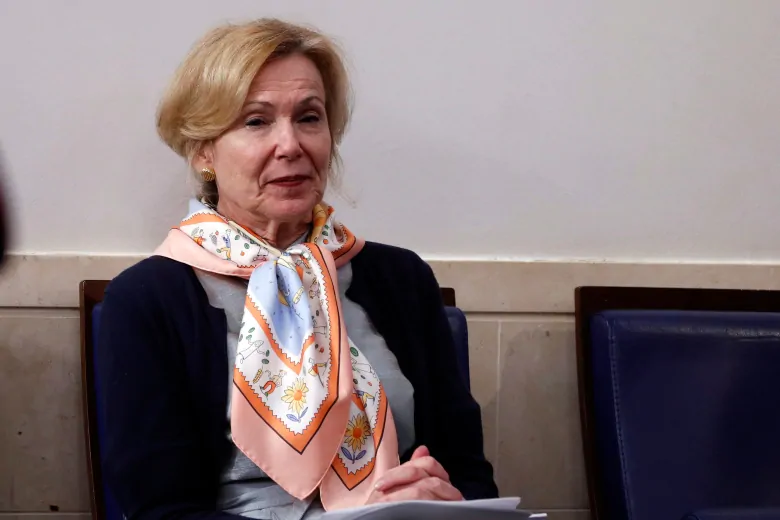Doctors horrified by Trump's 'dangerous' disinfectant comments on COVID-19

Doctors and health experts urged people not to drink or inject disinfectant on Friday after U.S. President Donald Trump suggested scientists should investigate inserting the cleaning agent into the body as a way to combat COVID-19.
“[This is an] absolutely dangerous, crazy suggestion,” said Paul Hunter, a professor of medicine at Britain’s University of East Anglia.
“You may not die of COVID-19 after injecting disinfectant, but only because you may already be dead from the injection.”
Trump said at his daily media briefing on Thursday that scientists should explore whether inserting light or disinfectant into the bodies of people infected with the new coronavirus might help them clear the disease.
“Is there a way we can do something like that by injection, inside, or almost a cleaning?” he said. “It would be interesting to check that.”
Trump looked over at Dr. Deborah Birx while making the comments. The co-ordinator of one of the White House’s coronavirus task forces appeared uncomfortable and caught off-guard.
Parastou Donyai, director of pharmacy practice and a professor of social and cognitive pharmacy at the University of Reading, said Trump’s comments were shocking and unscientific.
Donyai said people worried about the new coronavirus and the COVID-19 disease it causes should seek help from a qualified doctor or pharmacist, and “not take unfounded and off-the-cuff comments as actual advice.”
‘Under no circumstance’: Lysol
Robert Reich, a professor of public policy at the University of California at Berkeley and a former U.S. labour secretary, added on Twitter: “Trump’s briefings are actively endangering the public’s health. Please don’t drink disinfectant.”
Reckitt Benckiser, which manufacturers household disinfectants Dettol and Lysol, issued a statement on Friday.
“Under no circumstance should our disinfectant products be administered into the human body [through injection, ingestion or any other route],” the company said.
Trump’s comments were also met with alarm by the medical experts that the U.S. news networks employ as contributors.
“I just don’t think we should be normalizing that in any way, shape or form,” said Dr. Sanjay Gupta on CNN.
In the same segment, Dr. Leana Wen said the experts serving in the administration are engaged in a difficult balancing act of needing to tell the truth “while at the same time not upsetting the president so much that they can’t be credible in his eyes.”
WATCH l Misinformation on cures spreads along with virus:
On MSNBC on Friday, former congressman and Morning Joe host Joe Scarborough said the president’s comments had now gone “beyond parody.”
Trump, in his bid to provide optimistic news as the country grapples with the deadly pandemic, has previously been criticized for dismissing the dangers of coronavirus as overblown.
As its dangers became clear, he began touting drugs whose efficacy in treating patients with the coronavirus has not been proven and which sometimes lead to deadly side-effects.


